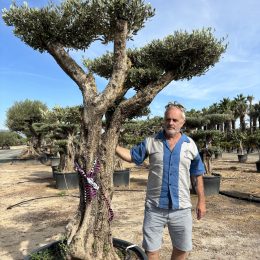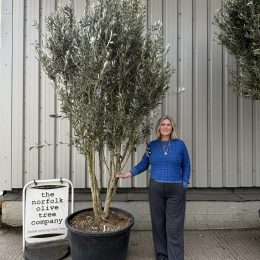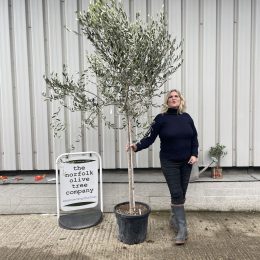When do olive trees fruit?
A common question asked about olive trees is when do olive trees fruit? Here, we look at how and when this happens, and if it can be helped along with a gentle nudge.
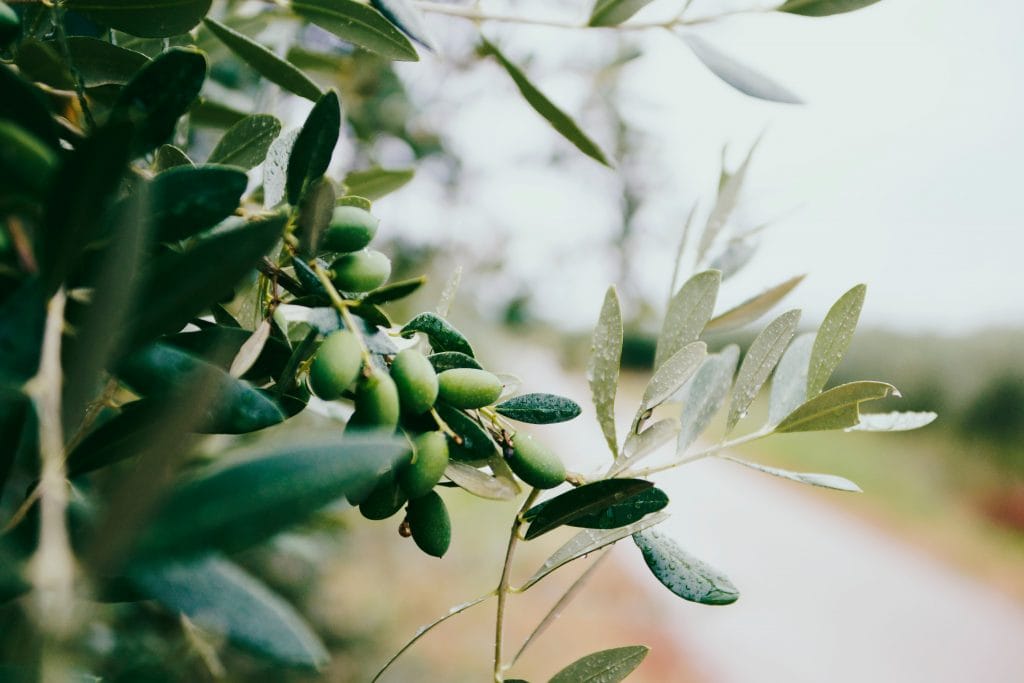
How do olive trees fruit
Olives are mostly considered ‘self-fertile’ meaning they do not require the pollen of another tree in order to fruit. This means a single tree has the capacity to produce even the smallest amount of fruit. Importantly, not all Olive trees will self-fertilise effectively. The best varieties for fruit are The Arbequina and Picual variety.
However, most varieties will produce larger crops with another variety nearby for pollination. If you’re looking to produce fruit, ideally olive trees need a two-month period of cold weather (below 10°C). They also need a fluctuation between day and night-time temperatures. Growing more than one cultivar will increase cross-pollination and improve yield. Generally, flowers are wind-pollinated, so shaking the branches during flowering will release pollen to help to improve fruiting. Another thing to consider is finding a warm, dry spot in the garden. This is because increased humidity at flowering time helps fruit to set.
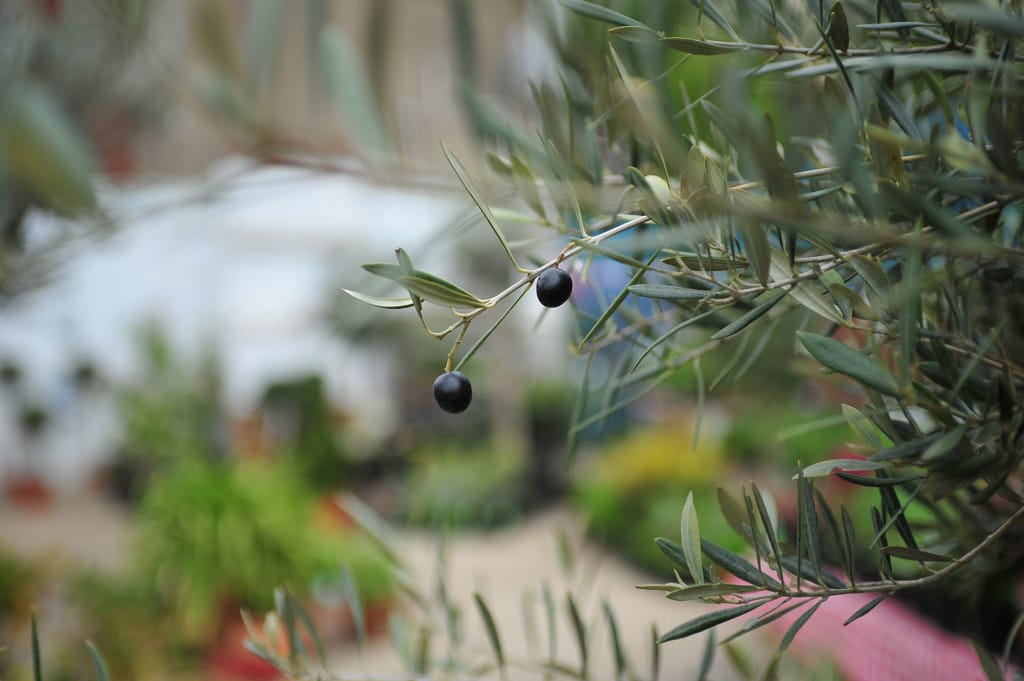
What can prevent olives from growing?
Although olive trees require some cold weather, if it withstands prolonged cold weather, fruit production is likely to slow down. Therefore, plants kept indoors are unlikely to flower as they don’t experience the weather needed. Also, very dry soil conditions can prevent flowering, even if the tree is able to tolerate it. Watering during dry spells between March and May is crucial for fruit production. When olives are produced, avoid excessively dry conditions during the summer as this may cause the fruit to shrivel. Fruit is produced at the tips of the previous year’s growth, so excessive pruning will also prevent fruiting.

If you have an olive tree the chances are you’ve wondered when do olive trees fruit. Hopefully, this has given a helpful insight into the do’s and dont’s of olive fruit growing. Remember to read my page on curing your Olives.
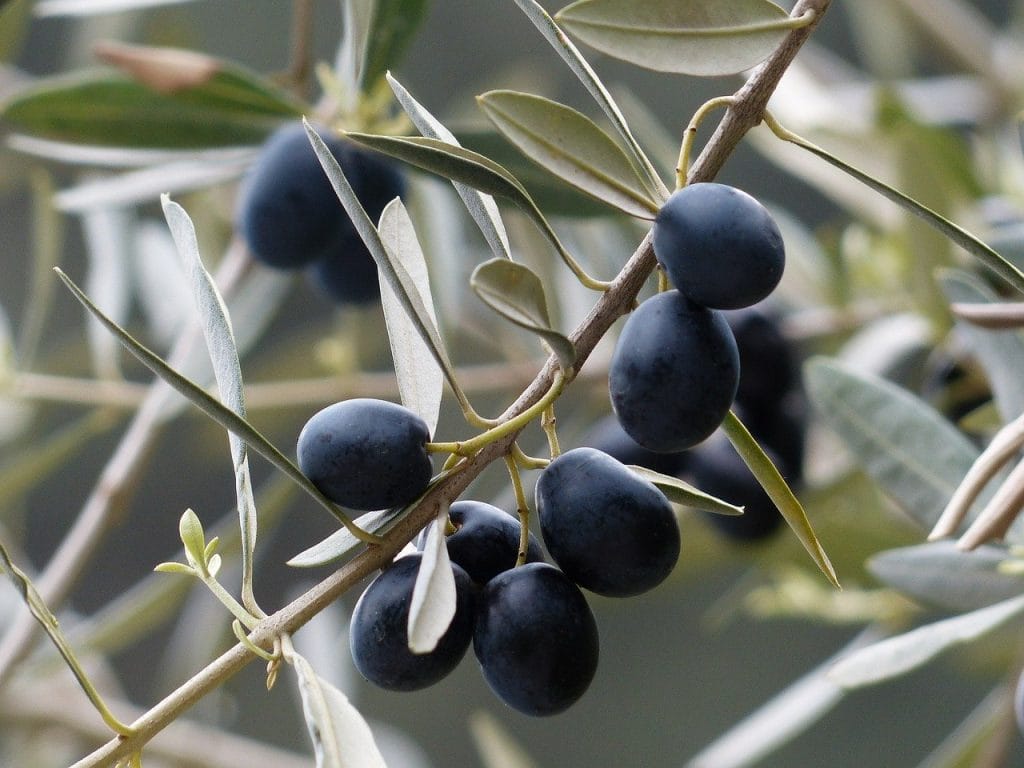
Should you want to find out more about these wonderful trees then please contact us for more information.


